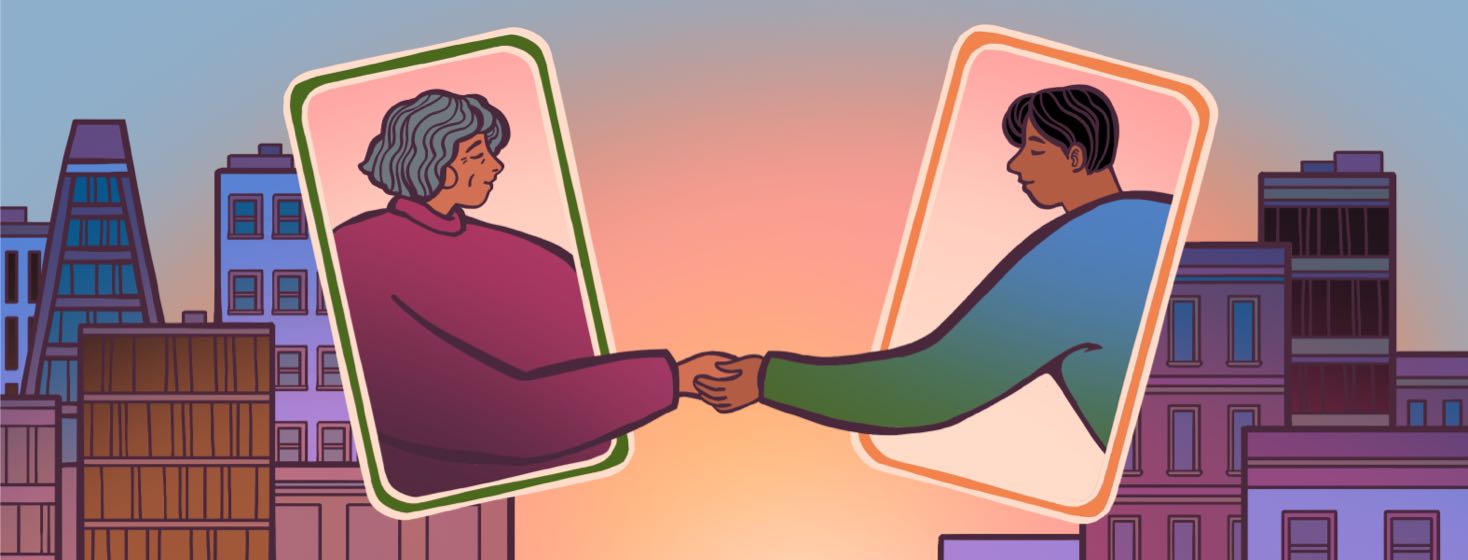From My Son: Stay or Go? Helplessness or Hope?
The weeks and months after my Mother's bladder cancer diagnosis was even more challenging than those first few days. I had been able to search more calmly through information on the internet about my Mother's particular type of bladder cancer. There were regular updates from back home about the proposed treatment plan recommended by health professionals.
Coping with a loved one's bladder cancer diagnosis
If I've managed to get my head around the situation, why does my heart still scream that I should be with my Mother? Feelings of helplessness and guilt invade my thoughts uncontrollably. And a question constantly bounces around my head: Will I ever feel OK about not being at my Mother's side as she faces her greatest battle yet?
Sometimes, the situation is forgotten for a short while, but something triggers my memory. I remember that my Mother has cancer, and all the questions and feelings resurface. But what is worse than remembering my Mother has cancer is the uncontrollable guilt that I somehow "forgot" about the situation. My family back home isn't getting a break from this news, so why is it so easy for me to forget?
In those moments, consumed by guilt and helplessness, it feels wrong to be enjoying your life.
I was continuously weighing up the pros and cons of moving back home or staying where I was and completing my studies. If I drop out this year, maybe I can pick up my studies again next year. But what if my Mother's recovery takes more than a year? I had no idea what the real recovery time was for this type of cancer, so how could I make a plan?
That's the thing about life and the challenges that come along the way. You can't plan; you need to make a choice and hope that it's the right one.
My decision
The choice I made was to continue living and studying abroad. However, I know that this option won't be possible for everyone. I am lucky enough to have a good support network and a large family around my Mother, who was there to help and support her through the darkest times of her cancer journey. But even though I had made the logical choice to stay, the feelings of isolation, helplessness and general anxiety about the unknown would haunt me for the duration of my Mother's recovery. This is something that I had to learn to rationalize and deal with.
Fortunately, I could talk through all of these feelings with my family, which helped. But I warn you if you're living abroad and in a similar situation, the logical versus the emotional battle will rage within for the duration of your loved one's cancer journey. It also feels like you will never be happy with your choice.
Haunted by the "What if's?"
Happily, my Mother's battle against cancer was successful. Her treatments were effective, and the outlook was getting more positive with each appointment.
But if I look back to when I was there, feeling alone in the eye of the storm, there were always the "What if's?"
What if the worst happens and they don't recover? How could I overcome the guilt of not putting my life on hold just for a little bit to savor the last weeks, months, or years we could share? Luckily for me, these were questions that I never had to face. But not everyone has the same experience, and I am grateful to never have to search for these answers.
The advice I would pass to others
Deciding if you should stay where you are or move home is a very personal choice. The guilt of life going on and the shame felt whenever you "forget" about your loved one's cancer journey will feel like a hot knife in your stomach every time it happens. I learned from my experience that talking through your emotions and the options you are considering making with your loved one is a necessary step in accepting your choice.
If you're lucky like me and all ends as well as it can, these feelings and worries ease over time. But remember that no matter how you rationalize or justify your choices, the emotional bond will always be trying to pull you back, and you will never really know what the right plan is. This is why you must make a choice that is right for you, your loved one's situation, and one you could live with if the worst were to happen.

Join the conversation